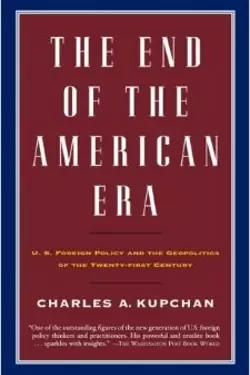
The End of the American Era
U.S. Foreign Policy and the Geopolitics of the Twenty-first Century

- Book
- Foreign policy analyses written by CFR fellows and published by the trade presses, academic presses, or the Council on Foreign Relations Press.
At a time when American primacy appears to be stronger than ever, Council Fellow and Georgetown Professor Charles Kupchan argues that the end of Pax Americana is near. What will replace American supremacy, and how American leaders should prepare for this new era, are the central questions of this provocative new book.
In a work of remarkable scope, Kupchan contends that the next challenge to America is fast emerging. It comes not from the Islamic world or an ascendant China, however, but from an integrating Europe, whose economy already rivals America's. According to Kupchan, as the European Union seeks influence commensurate with its economic status, it will inevitably rise as a counterweight to the United States. America and Europe are parting ways, and the discord will extend well beyond the realm of trade. Decades of strategic partnership are poised to give way to renewed geopolitical competition.
More on:
Kupchan argues that the unraveling of American primacy will be expedited by growing opposition at home to the country's burdensome role as global guardian. Although temporarily reawakened by terrorism, America's appetite for international engagement is on the wane; the country's historic aversion to foreign entanglements is making a comeback. Returning as well is America's fondness for unilateral action, which risks alienating the partners needed to tame an increasingly complex world.
A Council on Foreign Relations Book
More on:
 Online Store
Online Store